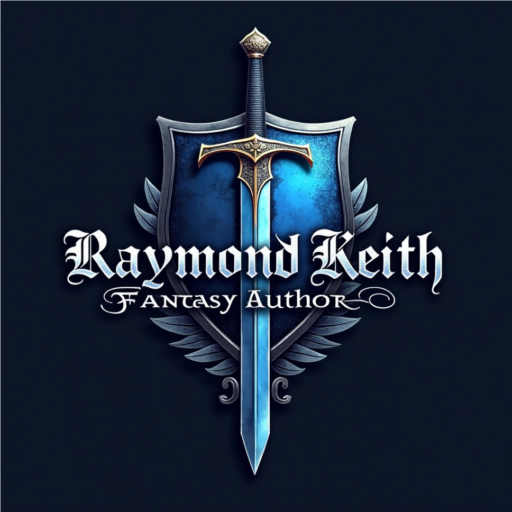
King Arthur Changed the World
Ideas and Ideals
A well-known quote from C. S. Lewis is “Since it is likely that children will meet cruel enemies, let them at least have heard of brave knights and heroic courage.”
The fact that I am quoting it here supports the thoughts that I want to discuss. Words can be powerful. Words can be powerful because they convey ideas. Ideas that take hold change society or even move the world. Many times, these ideas may not be absolutely perfect, but they point to an ideal we can strive for.
Medieval Knights and Chivalry
Lewis mentioned “knights” in his quote. Even in our day and age, the idea of the knight still influences our culture. In the 11th century, a few of the knights who went on the Crusades wrote of their experiences as they traveled to foreign places. People in the courts back home hungered to hear news and learn about the soldiers’ lives and exotic cultures.
By the 12th century, knights expanded their skills beyond martial arts. Knighted men, mostly French, traveled from court to court, regaling all with their wit and songs, at first mostly focused on the popular themes of romantic love. As time passed, the “troubadours” expanded their themes beyond love and moved into heroism and chivalry. Not only did they compose poetry about themselves, but soon heroes of old also became the subjects of song and story. The Song of Roland, the story of Charlemagne’s mightiest knight, was first written by an unknown troubadour around 1100 AD, exalting the virtues of honor, courage, and love. The tales of Robin Hood and King Arthur also come from this time period.
The Ideal Knight
The idea of King Arthur and his chivalrous knights took hold. The knight-errants of these tales had adventures that “included not only tournaments and combats but supernatural experiences with dragons, giants, enchanted castles, spells, and magic rings” (The Knight in History, Frances Gies, p76). According to Gies, beyond just the intrinsic literary values of these works, these ideas and stories heavily influenced European thought and culture. “Chivalric literature played an important part in the history of knighthood. It contributed to fixing the self-image of the knight and to strengthen his esprit de corps. It helped define standards for knightly behavior, some of which were implicit in knightly life-style itself, some, the religious and moral, set down in the codes of chivalry that began to appear late in the twelfth century.”
Historic real knights may not have lived up to standards put forth in these stories, but it was an ideal to strive for. Gies continues, “…through all these forms, adaptations, reiterations, and interpretations, the Arthurian romances made a deep impression on the knightly class…” and the knight of this age “tried to model himself after the heroic examples of Lancelot and Percival.”
The concept of the ideal knight changed the behavior of the soldier from just a warrior into someone who defends the weak against the strong, “to be merciful without wickedness, affable without treachery, compassionate towards the suffering, and openhanded.” And “Knights must have two hearts, one as hard as diamonds, the other as soft and pliant as warm wax.” Hard towards traitors and felons, merciful towards those who claim pity.
The True Ideal
Many times in history, new philosophies, religious ideas, and moving stories have changed the identity of a culture. Ideas can be powerful. Words can change society or even move the world. As writers, we potentially have that power thorough the stories we write. Heroes, stories of moral men and women who saved the world or even just helped a child, deeply influenced my childhood and growth. But wrong ideas have also plunged the world into horror, too. Humanistic ideas such as communism or fascism have been devastating.
As an author, I must not promote my own opinions, or even the moral virtues of the medieval knights, but encourage all to strive towards the highest ideal. My writings need to promote those of the One who is all-knowing, just, righteous and holy. We all need to direct others to be ideal image bearers, for everyone of us to strive to be like Christ. To deepen our understanding of the Biblical worldview, whether we do it directly or indirectly. Words are powerful. Let us use them for the glory of God, even in fantastical stories.
Tales of Timeless Values
I prefer noblebright or nobledark stories. Stories of hope and triumph. Good overcoming evil. Darkness may be victorious for a season, even a long season, but it fails in the end. Evil cannot last because it destroys itself. Greed, selfishness, envy, gluttony are all self-destructive. Those that stand for justice always will arise, even when the odds seem overwhelming. We want genuine heroes. Men and women who sacrifice it all for others, who stand in bravery even when all seems lost or hopeless. Stories of justice, truth, beauty, and integrity. These are the stories we love. Stories that glorify God and His nature. They are timeless and these are the stories I write. If you enjoy epic fantasy adventure with timeless values, try my stories. Sign up for my newsletter. Let us share an adventure together!
The Inn at the Forest’s Edge
My first published novelette, The Inn at the Forest’s Edge, takes place in Veardalan, a medieval style world with goblins and elves, unicorns and dryads roaming an ancient, enchanted forest. A young hero must enter the mystical woods, learn to face his doubts, and find his courage. If that stirs wonder in you, you may purchase it here.

